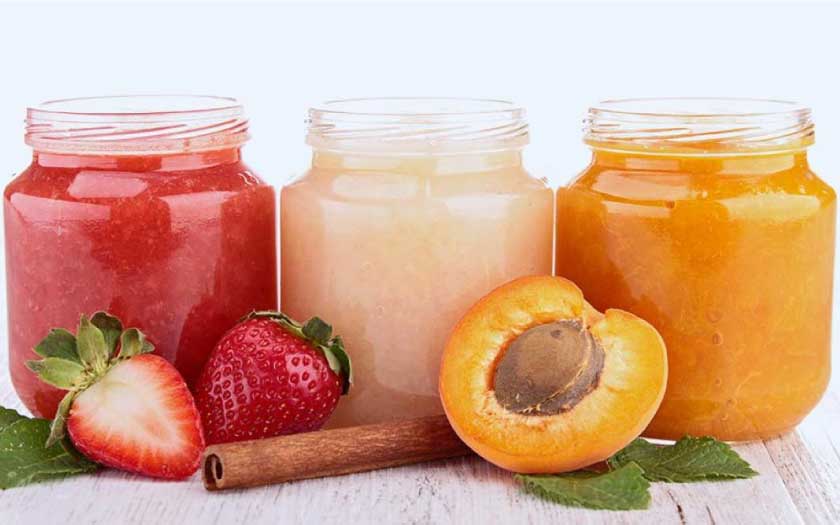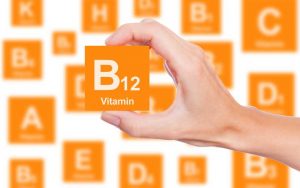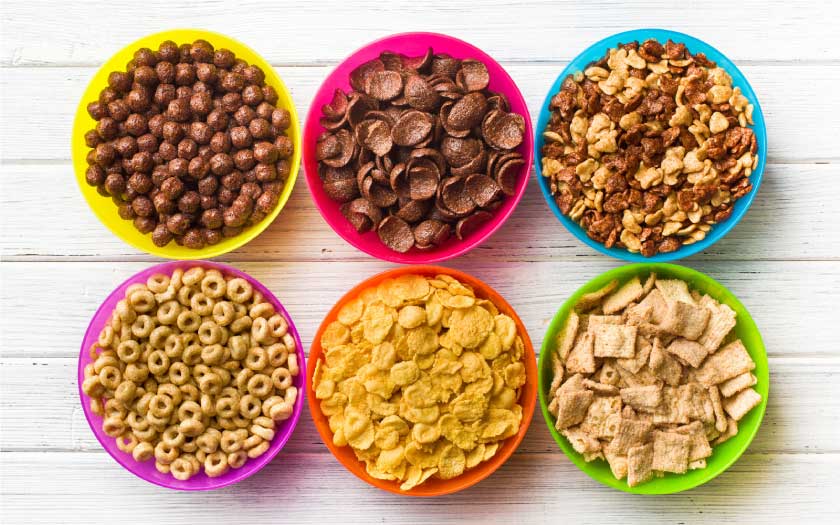Bringing up a vegetarian or even a vegan child is not uncommon. However, it’s also not uncommon for a child on an alternative diet to be undernourished, especially in cases where the parents themselves are new to an alternative diet. The key to proper nutrition, regardless of any kind of diet, is knowing what the body needs to thrive and which foods to include to get them.
Parents may have their legitimate reasons to put their little ones on a vegetarian or even vegan diets, and while they may have every right to do what they feel is right for their family, ensuring their growing child gets the required nutrients for optimum development should still be of the highest priority.

Weaning a vegetarian baby
Regardless of diet type, babies have to start eating solids at about six months to obtain the required nutrition for their various developmental stages. Any deficiency in nutrients during these delicate stages can have severe consequences on their development. This is especially important for vegetarian parents to remember for additionally, there might be a risk that a vegetarian or vegan diet may be low in iron and energy and too high in fibre.
You can make sure your child gets enough iron by giving them:
- Fortified baby cereals
- Dark green leafy vegetables (cooked and pureed)
- Bread
- Beans and lentils (cooked and pureed)
- Dried fruit, such as apricots, figs, and prunes (blended into baby foods)
Note: Vitamin C in fruit and vegetables helps the body to absorb iron, so include these at every mealtime.
Parents often wonder if their little ones are getting all the precious nutrients they need to thrive, especially when their child goes through a picky stage when it comes to food. Again, regardless of diet type, you can be better ensured that your little one gets most out of every meal by offering:
- Smaller meals
- More frequent meals
- Nutritious snacks
- A good variety of foods that contain calcium, vitamin B12, and vitamin D
Supplements
Babies and toddlers can benefit greatly from vitamin supplements containing vitamins A, C, and D every day. Babies who are being breastfed should also be given a daily vitamin D supplement from birth. However, babies who are having more than 500ml (about a pint) of infant formula a day shouldn’t be given vitamin supplements because the formula is fortified with certain nutrients and no other supplementation is required.
Not to be replaced
Plant-based beverages such as rice, almond soy, hemp, or coconut should not replace breastmilk, cow’s milk, formula, or fortified soy beverage. These beverages do not have enough calories, fat and often, they lack the required amount of protein for growing children.
Vegan nursing moms
If you’re a vegan nursing mom, you must include a vitamin D as well as Vitamin B12 supplementation to your daily diet.
Feeding vegetarian and vegan toddlers
Parents will have to practice responsibility when putting their little kids on alternative diets. Young children need a good variety of foods to provide the energy and vitamins they need for growth.
Vegetarian and vegan diets can be bulky and high in fibre and they make little tummies feel full before they acquire the calories needed for energy and growth. Therefore, dietary supplements may be needed. Consult your doctor or dietician for adequate advice before introducing or weaning a baby to a vegan diet.
Protein
Protein is necessary for muscle growth and repair. It is also needed to help in the production of enzymes and hormones.
Breastfeeding until your child is two or more, or giving them soy-based formula milk if they are vegan, will help ensure they get enough protein. Other than that, the following are important sources of protein for growing bodies:
- tofu
- beans, peas, and lentils
- groundnuts/seeds or nut/seed butter
- soy formula or fortified soy beverage (Consult your GP for advice before using soy-based formula)
- fortified soy yogurt
- textured vegetable protein
- soy-based ‘meat’ products
- eggs
- cow’s milk and dairy products
Calcium
Calcium helps bones and teeth grow and be strong. The following are rich sources of calcium that should be included in a little one’s diet:
- breastmilk
- infant formula
- cow’s milk, yogurt, cheese
- fortified soy yogurt
- calcium-fortified tofu
- almond and sesame butter
- beans, peas, and lentils
- blackstrap molasses
- fortified orange juice
Fat
Growing bodies need fats for growth and energy, so be sure to include foods with appropriate amounts of fat in your child’s daily diet. Good sources of fat include:
- oil and soft non-hydrogenated margarine
- avocado
- groundnuts/seeds or nut/seed butter
- tofu
- breastmilk
- infant formula
- 3.25% homogenized whole milk
- cheese
- yogurt
Vitamin D
Vitamin D helps the body absorb minerals, like calcium and phosphorus, which are needed for bones and teeth. Food sources of vitamin D include soft margarine; cow’s milk; infant formula; fortified soy beverage and eggs.
Toddlers over one year of age need a 400 IU per day vitamin D supplement if they do not drink cow’s milk, soy formula, or fortified soy beverage daily, and also if they do not get a varied daily diet. If you’re unsure about Vitamin D supplements, consult your doctor or dietician.

Vitamin B12
Vitamin B12 helps the body to use fats and to make red blood cells. Vitamin B12 is only found naturally in animal foods, including:
- eggs
- cheese and yogurt
- fortified soy-based ‘meat’ products
- nutritional yeast such as Marmite
- cow’s milk
- infant formula
- fortified soy beverage
- breastmilk (note: the breastmilk of vegan mothers may not provide significant amounts of vitamin B12 though)
If your child’s diet does not include much of this food, speak to your doctor or dietician about Vitamin B12 supplements.

Iron
Iron is important for optimum physical and mental development. It carries oxygen from the lungs to the rest of the body, including the brain. Good sources of iron include:
- fortified cereals
- beans, peas, and lentils
- tofu
- eggs
- blackstrap molasses
Iron is best absorbed when eaten with foods rich in vitamin C such as kiwi, oranges, mango, broccoli, melon, etc.
Zinc
Zinc supports normal growth and development. It helps the body use carbohydrates, protein, and fat from foods, and is needed for good immunity and body tissue growth and repair. Foods rich in this nutrient include:
- nuts and seeds
- beans and lentils
- wheat germ
- cow’s milk and dairy products
Omega-3 Fats
Omega-3 fats are found to support the development of brain and vision in little children, and growing bodies need a daily supply of this important nutrient. You can find decent amounts of omega-3 fats in:
- canola oil
- ground chia and hemp seeds
- ground flax seeds
- soy oil
- soybeans
- ground walnuts or walnut butter
- tofu
- omega-3 enriched products like some eggs and vegetable spreads
Featured image source: Fotolia


